Thomas Seibert
May 31, 2011
ISTANBUL // Members of the Syrian opposition in exile gathered for a conference in southern Turkey yesterday to discuss ways of raising the pressure on the regime of President Bashar al Assad.
The meeting comes at a time when the government in Ankara is showing increasing signs of impatience with Damascus after weeks of fruitless efforts to push the Assad government to implement political reforms. The Assad regime has been trying to crush a popular uprising against the government.
Rights activists say more than 1,000 people have been killed in the crackdown that started in March and has been condemned by the United Nations and triggered western sanctions against the Assad government.
Ammar Qurabi, the president of the Egypt-based National Organisation for Human Rights in Syria, or Nohr, one of the groups behind the two-day meeting in the Mediterranean resort of Antalya, said he expected about 300 participants at the “Syrian Conference for Change”.
In a first reaction to the general amnesty declared by the Assad regime yesterday, Mr Qurabi stressed that important details about the scope of the amnesty were not known.
“As a start, we welcome any step that gets people out of jail,” he said. But he added it was unclear if people that were still in police custody after their arrest by Syrian security forces would also be released.
Mr Qurabi and other opposition representatives said one aim of the meeting was to create a body that could represent the Syrian opposition internationally, but not to form some kind of government in exile.
“Maybe we will establish a small committee” to coordinate communication between exile groups and to support the resistance to the Assad regime within Syria,” Mr Qurabi said.
As for political demands, Mr Qurabi pointed to the so-called Damascus Declaration of 2005, a five-page document calling for democracy in Syria and supported by a broad range of opposition groups, including the Muslim Brotherhood, a powerful Sunni group banned in Syria.
Mr Qurabi said yesterday that the Muslim Brotherhood would also be represented in Antalya. The opposition should “unite under the roof of a revolution of freedom and dignity for the construction of the new Syria”, he said earlier in a Nohr statement released in the run-up to the conference.
“This regime cannot be reformed,” Anas Abda, secretary of the Damascus Declaration General Council, another opposition group, told the semi-official Turkish news agency Anadolu in Antalya. “The main demand of the conference is this: We want real change in Syria.”
But even before the meeting got under way, cracks appeared between opposition groups. Some reports said Kurdish organisations had not been invited to the meeting.
In London, Ribal al Assad, the director of the Organisation for Democracy and Freedom in Syria and a cousin of the Syrian president, said in a statement it was “very clear that some of these individuals [in Antalya] are not genuine representatives of the Syrian people. Moreover they are individuals who promote extremism or sectarianism, which has no place in the path to freedom and democracy.”
The Turkish government did not embrace the Antalya meeting officially. Mr Qurabi said the organisers had had no contact with Turkish government representatives. “We sent them the files about the conference, and they allowed it to go ahead,” he said, adding there had been no other Turkish involvement in the event.
A visit to Istanbul in April by leaders of the Muslim Brotherhood triggered an angry statement by Nidal Kabalan, the Syrian ambassador in Ankara. “For us, the Muslim Brotherhood is like the PKK is for Turkey,” Mr Kabalan told a Turkish newspaper at the time, in reference to the Kurdistan Workers’ Party, or PKK, a rebel group fighting for Kurdish self-rule and regarded as a terrorist organisation by Ankara.
The fact that Turkey, one of the closest international partners of the Assad regime in recent years, is once again playing host to a meeting of the Syrian opposition despite reservations in Damascus is no coincidence, said Oytun Orhan, an expert on Syria at the Centre for Middle Eastern Strategic Studies, a think tank in Ankara.
“Turkey is disappointed by Assad,” Mr Orhan said. The government in Ankara has been calling on Mr Assad to implement what Turkish officials have described as “shock reforms” for more democracy, but Ankara’s pleas have been ignored by Damascus. “So Turkey is keeping up the pressure for reform on one hand and trying to sharpen the profile on the opposition on the other.”
According to Turkish news reports, Recep Tayyip Erdogan, the Turkish prime minister, renewed his demands for reforms when he spoke to Mr Assad by telephone last Friday. “Radical steps that stun everyone are needed now,” Mr Erdogan reportedly told the Syrian leader.
Mr Orhan said Turkey had invested a considerable amount of international credibility by telling the increasingly sceptical West that the Assad regime was willing to reform the country. But as Syria keeps ignoring Ankara’s advice and moves closer to Iran, Turkey has started to change tack, Mr Orhan said.
“This is not the first meeting of the Syrian opposition in Turkey,” he said about the conference in Antalya. “It can be read as a message to Syria.”
Mr Orhan said Turkey was also concerned about a perceived increase of Iranian influence in Syria. “I think there is a Turkish-Iranian competition in Syria, just like in Lebanon and in Iraq,” he said.
In a recent analysis posted on the website of the Centre for Middle Eastern Strategic Studies, Mr Orhan argued that Iran saw a potential regime change in Syria as a threat. “Right now, the Syrian government does not trust any player, including Turkey, as much as it trusts Iran,” he wrote.
In Antalya, the conference triggered a short confrontation between Syrians opposed to the Assad regime and supporters of the government in Damascus.
Government opponents and supporters arrived in Antalya on the same flight from Istanbul, Turkish media reported. The government supporters protested when the opposition representatives unveiled signs with anti-Assad slogans after their arrival, the report said. Turkish police intervened to prevent the situation from escalating. The Assad supporters were gathering for a counter-conference in another hotel in Antalya, the reports said.
[email protected]
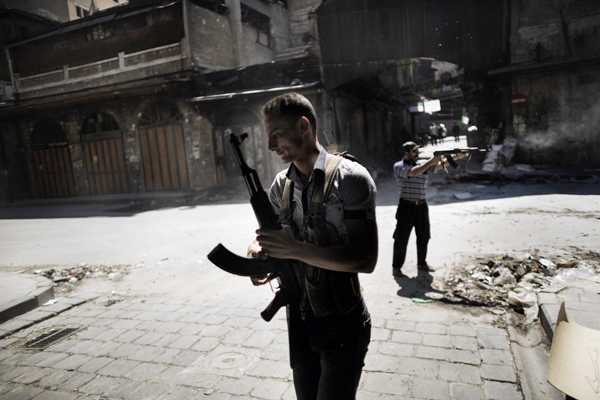

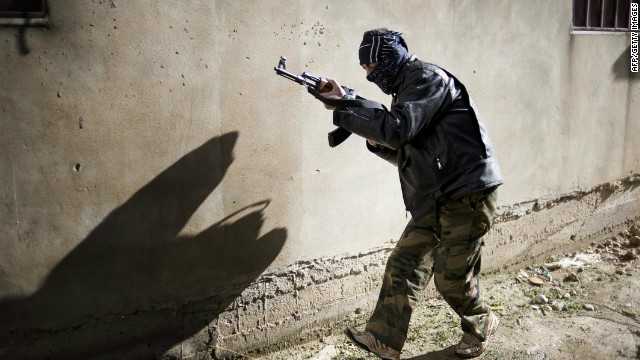
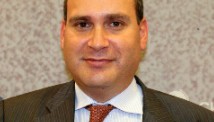
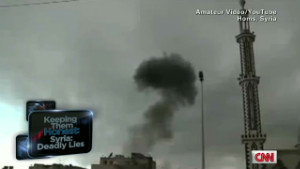 Men, women and children trapped in Syria
Men, women and children trapped in Syria Syria’s accidental President al-Assad
Syria’s accidental President al-Assad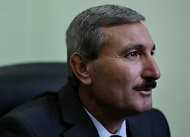
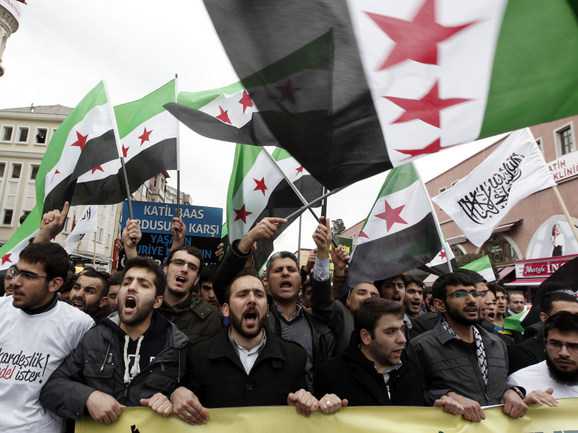

 NICOSIA — The regime of President Bashar Assad has acknowledged increasing attacks on its military believed aided by neighboring Turkey.
NICOSIA — The regime of President Bashar Assad has acknowledged increasing attacks on its military believed aided by neighboring Turkey.